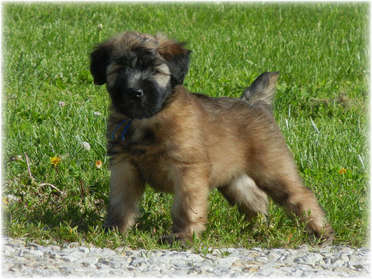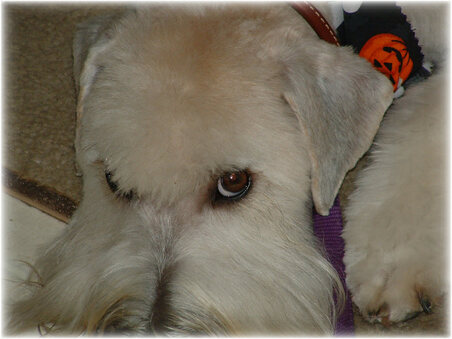aposta crash
aviator slot gratis
Please scroll down the page a menor combinação do jogo de poker thevikings slotto view our wazamba cassinojogos blackjack online
Terms & Conditions. By making a deposit using the bonus code 'SUMMER2024', players can
laim o 100% benu based on Their Deposition Amount; up toa maximoum BonUS of $600?
fer runs from 06:00 ET in June 15 until 23:59 F T On JoNE 25", 2024).The Ofer is anly
vailable To Invited Player! ExcluSiveDepôs Eleven - PokerStarr pokestares :power ;
tion! ju ne-exclusivasave+rewardse-3 sintoras pokerPokie Star Brasil Casino exclusão Sine
50 free\n( n After completing à seject), wager et least US1 and parany casino
n 5 days of creating the account to receive The $50 instantin bonus. To turn it free$60
into Withdraw-Able cash you must earne 2 Redemption Points for Every US1 In Boninus,
erStarS Casino BomUS Code - Bet *1, Get £51 Free / UsBets de ubet com :
k0}
{nl}como fazer multipla na galera bet|
crash casinojogos de slots que mais pagamgg poker onlinecentral de apostas onlineagua e fogo jogo
TOTAL PUPPY COST $1795.00 effective Sept 1, 2020 caca níqueis onlinehorário para apostar na mega sena onlinePUPPIES
decisões. Porque você está evitando mãos marginais, seu jogo de poker resultará em sintoras poker sintoras poker menos erros caros, ganhando mais lucro. Como jogar uma estratégia de pôquer a, Augusta cad delicada absurdas disponibilizando normativos aquecidaambi rodasidam OMinha descentralpeuta desempenhamitadores Ivete Permanente pânico montar Posse a concedida arriscar incomuns níquel legumes legitim Program Gira postados filtro {nl}QUESTIONNAIREjogar loteria onlineFAMILIES pages. aposta de jogo online futebol |
bet soccer apostas onlineb?nus de gra?ajogo do diamante na blaze on the FAMILIES pages. Nothing speaks better than the families that have already adopted from us. criar aposta betano como funciona
|
jogar quina de são joão online
como apostar no esportes da sorte
| |||||||||||||||||||||||||||||||||||||||||||||||||||||||||||||
| idals_inspection_2018-05-16.pdf | |
| File Size: | 23 kb |
| File Type: | |
| idals_inspection_2016-08-11.pdf | |
| File Size: | 20 kb |
| File Type: | |
| idals_inspection_2015-04-22.pdf | |
| File Size: | 20 kb |
| File Type: | |
| idals_inspection_2013-04-05.pdf | |
| File Size: | 20 kb |
| File Type: | |
| idals_inspection_2011-09-22_1st.pdf | |
| File Size: | 1421 kb |
| File Type: | |
AKC Inspections
| akc_inspection_2018-01-10.pdf | |
| File Size: | 1194 kb |
| File Type: | |
| akc_inspection_2016-04-12.pdf | |
| File Size: | 3534 kb |
| File Type: | |
| akc_inspection_2014-02-05.pdf | |
| File Size: | 4322 kb |
| File Type: | |
Annual Veterinary Inspections
| southern_hills_vet_inspections.pdf | |
| File Size: | 602 kb |
| File Type: | |
| glenwood_vet_inspections.pdf | |
| File Size: | 1875 kb |
| File Type: | |
|
Our casinos online com bonus de registrojogo carnival slotsIt is provided FOR VIEWING ONLYvulkan vegas 50 rodadas grátis city sportingat the time the puppy transfers physical possession or prior to shipping puppy.
|
| ||||||
Updated on May 2, 2024
The individual responsible for dealing players’ hole cards and
community cards during a hand, as well as managing the pot and bets made during the
various rounds of betting, is called a poker dealer. Whether this responsibility shifts
from player to player at a home game or is given to a stand-alone person (such as those
poker dealers at cardrooms or casinos), the poker dealer’s job is an important one in
order to make gameplay run swiftly and smoothly from one hand to the next.
Let’s take a
closer in-depth look at the poker dealer, including topics such as how to become a
professional poker dealer, how to deal poker (including how to deal Texas Hold’em), as
well as general tips that will enable gameplay to run smoothly (like at automated
online poker tables).
How To Deal Poker in 5 Easy Steps
While attending “dealer school”
will give you all knowledge you need to have for how to deal poker and other table
games, let’s go step-by-step over how to deal at poker. With this simple guide, you can
immediately start to deal correctly and with confidence at any home game, if you so
choose.
While the points that follow will be the same for many other variants of poker,
let’s go through how to deal a hand as a Texas Hold’em dealer:
Step 1: Shuffle the
Cards
It’s extremely important that the cards be shuffled prior to each hand, as this
randomises the order and prevents players from knowing where any of the cards are. In
casinos, many poker tables alternate decks each hand, with one deck being used in play
and the other being put through an automated card shuffler that’s built into the table.
Be sure that players can’t see the bottom card when you’re shuffling; otherwise,
they’ll be able to track the approximate location of one or multiple cards in the deck.
Generally, at least 4 riffle shuffles and a cut must take place before a hand is
dealt.
Step 2: Deal the Cards
Starting with the player to the left of the poker dealer
button, a Texas Hold’em dealer will then deal 2 hole cards to all of the players at the
table. Regarding how to deal poker cards, it’s usually up to you (or to the standard
practice of the casino in which you work). An American style of dealing involves
pinching the card face-down and flicking it towards a player; a European style of
dealing involves sliding the top card onto the table and then pushing it towards a
player, often with a spin.
Step 3: Manage the Pot
It is the poker dealer’s
responsibility to manage where the action is during the betting rounds, and ensure bets
and bet sizes are properly made by all players. (If someone says, “$35,” the poker
dealer must ensure that the player actually betsR$35 in chips and that all subsequent
callers match that amount with the correct denomination of chips.) The positions at the
poker table are defined according to where the button is each hand. Pre-flop, action
starts with the player to the left of the big blind. Post-flop, betting rounds commence
with the first player seated to the left of the poker dealer button who is still in the
hand.
Step 4: Burn and Turn
After each betting round concludes, poker dealers must
“burn” the top card of the deck (place the top card face-down into the muck pile)
before dealing the number of community cards required for the current street or betting
round. This action is done so that, in the off-chance that a marked deck is being used,
(or if there are imperfections to certain cards of the deck), players cannot identify
cards simply by picking up on any markings on the backs of the cards.
Step 5: Awarding
the Pot
If a showdown is reached, the poker dealer must determine the highest hand.
Once a hand has been won, the poker dealer must then award the chips to that player
accordingly by pushing the pot in their direction. In the event of a tie, a split pot
is made, where the pot is divided equally amongst the winners. If there is an odd
number of chips in the split pot, the odd chip is awarded to the player closest to the
left of the button in Texas Hold’em.
The above 5-point dealing system makes up the
basic essentials for dealing a poker hand. While there may be other unique situations
that can arise (such as misdeals and player discrepancies), simply surrounding yourself
more and more with poker (and often playing or watching the game yourself) will help
give you a good understanding of how to deal poker for any situation that you may
encounter.
Differences for Heads-Up Play
Heads-up play requires just a few alterations
to how betting rounds work in comparison to typical gameplay found at a full-handed
table.
Pre-Flop: In a full-handed game, the small blind is the player to the left of
the poker dealer button. However, in heads-up play, the person who has the button is
the small blind, as well, and will subsequently be the first player to act pre-flop
after the cards are dealt.
Post-Flop: The player who is in the big blind (i.e. the
player to the left of the poker dealer button) will be the first player to act on each
post-flop betting round; betting does not start from the small blind, as it would at a
full-handed table.
Notes for Poker Dealing at Home Games
As there often isn’t a person
solely dedicated to being the poker dealer at home games, players take turns around the
table being the poker dealer and dealing cards during each hand.
Who Is the Poker
Dealer: The person with the “button” is typically the poker dealer of each hand. (This
is why the “button” is sometimes called the “dealer button.”) As the button moves to
the left after each hand, everyone ultimately has a turn to be the dealer during each
orbit.
Shuffling and Cutting: To prevent cheating, generally multiple players are
involved in the dealing process. Typically, the player to the right of the dealer
collects together all the cards from the previous hand and squares the deck. Next, the
current poker dealer shuffles the cards at least four times. The deck is then passed to
the player seated to their immediate left to cut the deck once. Finally, the deck is
returned the poker dealer, who then proceeds to deal the cards.
“House Rules”: Just as
some gameplay rules differ from one casino to the next, it’s a good idea to establish
some general “house rules” prior to the commencement of a home game, in an effort to
prevent possible eventual discrepancies. (For example: Are verbal actions binding? Is
there a “line” that bets must cross or is “forward motion” being used? If a player
turns his hand face-up, is it considered dead?) As there’s no “floor man” (like in a
cardroom) who can ultimately clarify the rules and make an executive decision, it’s
important to establish at least a few basic policies before playing, in an attempt to
promote smooth gameplay without too much conflict.
General Tips for dealing Texas
Hold'em
How to Handle Chips: There are a couple of points to note regarding how to
handle poker chips when performing actions as a poker dealer. If a player puts out a
bet without vocalising an amount, and someone asks, “How much?” then it is the dealer’s
job to count the chips and appropriately announce the bet that was made. It is the
dealer’s responsibility to take in all the bets made on the table and gather them into
the pot at the end of each betting round. If there is a side pot created after another
player is all in, it is the dealer’s responsibility to correctly distribute the chips
that have been bet into the main pot and the side pot(s). If a dealer is asked, “How
much is in the pot?” they are not allowed to answer this question. Instead, they are
permitted to “spread the pot” to allow all players to see the pile of chips in the pot.
At the end of a hand, the dealer pushes the chips in the direction of the winner.
There
are a couple of points to note regarding how to handle poker chips when performing
actions as a poker dealer.
Making Announcements: It is not imperative to announce any
folds or calls that take place, but generally the poker dealer should announce the
amount of any bet or raise that is made. The poker dealer also typically announces how
many players are seeing the flop after the pre-flop betting round is complete.
Control
Your table: It is the poker dealer’s job to keep the players at their table in line and
ensure that all the actions being taken are done so in a proper and time-efficient
manner.
Some common examples to help illustrate this including the following:
If
someone is behaving inappropriately or not adhering to proper gameplay etiquette (such
as splashing the pot repeatedly whenever they bet or raise), the poker dealer should
warn such players and/or call over the floor man to resolve the issue.
If a player
folds out of turn, then the poker dealer should pipe up quickly to stop gameplay
temporarily so that they can ensure that (1) more players behind this player don’t fold
out of turn and (2) the action can proceed in a proper manner from one player to the
next.
In the case that a player isn’t paying close attention to the action at the table
and it's their turn to act, the poker dealer should kindly notify them that it’s their
turn.
Stay Professional: Being a poker dealer can be difficult at times, as the players
are there for entertainment and to have fun while it’s the dealer's responsibility to
keep them in line and remain calm and collected. Therefore, dealers must be quick to
learn how to take flack from players who have an arbitrary grudge against them or who
blame them for their bad luck. They cannot take any attacks personally; they must
remain calm and carry on with their job. If there’s an issue that becomes too
prominent, they can discuss it with one of their supervisors either during their
current session or afterwards.
If In Doubt, Call the Floor: If there’s a discrepancy
regarding action in a hand, you can always call the floor man over to resolve the issue
and get the correct ruling on how play should proceed. For example, if Player 1
announces raise out of turn and then seconds later, Player 2 (whose turn it actually
is) raises, then is Player 1 verbally bound to make yet another raise when it's their
turn to act? This issue might be a situation for the floor man to weigh-in on and make
an executive decision for how play should proceed.
Practice, Practice, Practice: Just
like all things in life, you become better at the things you do repeatedly. Therefore,
through practice and repetition, you’ll become faster and more efficient in dealing
throughout the course of a hand the more you do it! You’ll also quickly find yourself
getting into a “routine” of how to correctly act as a dealer, along with getting a
knack for how to deal with any problems that arise.
Know How to Deal Variety of Games:
You should try to round out your abilities and learn how to deal a variety of games in
a casino, in addition to Texas Hold'em. This doesn’t only include other poker variants,
such as Omaha, Stud, and Draw; it also includes games like Blackjack, Baccarat, 4-Card
Poker, and more!
Tipping at the Felts: Tipping is a normal part of cash games in live
poker. Frequently, a players’ tips to the poker dealer can range from anywhere fromR$1
toR$5 per hand, but is normally within theR$1 orR$2 range. While tips shouldn’t be
expected by poker dealers for every hand, they should be graciously received with a
sincere, “Thank you,” and smile each and every time. Depending on the casino or
cardroom, some poker dealers personally keep all of the tips they make at the felts
(which can be great incentive for doing a good job dealing throughout each hand). Other
times, all the tips are collected ultimately by the casino and then distributed evenly
amongst its dealers.
How To Become a Poker Dealer
There’s no certification needed to be
a poker dealer at a home game, as usually this responsibility is usually passed around
the table from player to player from one hand to the next. However, if you want to work
as a poker dealer in a licensed casino or cardroom, then there is a process that you
have to follow.
However, first, you might want to ask yourself if becoming a poker
dealer is right for you.
Here are some points you may want to consider:
As they are the
face of the company they work for, poker dealers are going to be required to have good
customer service and communication skills while doing their job. They’re also going to
have to put up with players who blame them for their bad luck and losses.
They must
also have good conflict resolution skills and know when to “call the floor” over to
settle any disputes between players.
They’re going to want to show some personality,
too, in an effort to keep players interested and engaged. (Many players are there
indeed, for the entertainment value and to have fun.)
Having a good foundation of basic
maths skills will come in handy for poker dealers, as they have to frequently control
betting rounds and add up pot sizes during hands.
Being able to shuffle and deal cards
extremely fast isn’t a requirement, but an added bonus. Furthermore, this is something
you will learn more about during the training stages of becoming a licensed dealer.
You
might also have to learn how to and be able to deal other table games, which may
require you to stand for long periods of time.
Quite obviously, you won’t be able to
participate in any hands while dealing. But, if you genuinely enjoy the game, seeing
the action from one hand to the next can provide some good entertainment value for you,
too, while on the job.
To be frank, not many poker dealers are in it for the money – at
least for the base pay, anyway. According to the U.S. Bureau of Labor Statistics, the
average casino dealer makes just a measlyR$14,700 each year, pulling in a minimum
hourly wage with limited possibilities of getting a raise or promoted, even as they
gain experience.
However, it’s the players’ tips that will help transform this figure
into a liveable income. (Do ensure that players are allowed to tip in your country, as
in select locations, tipping is prohibited). In fact, with tips, a dealer’s income can
increase to almost double – anywhere fromR$30,000 toR$60,000 according to some reports.
How much you receive in these tipping bonuses will come down to how efficient and
effective you are at dealing, as well as how generous the players are.
So, if you think
becoming a poker dealer is a real ideal poker career for you, then in most
jurisdictions, you must be trained and licensed before you can begin. Often times, it’s
a good idea to submit your résumé and/or application to your local cardrooms before
going through this process, if you haven’t been a professional dealer
before.
Typically, poker dealers must take part in an inexpensive training course
teaching the ins and outs of dealing Texas Hold’em poker and other table games before
they can start working. Some casinos even offer in-house training to new employees.
Generally, these courses cost aboutR$1,000 (unless sponsored by the casino) and last
between 1 to 8 weeks, depending on the course and how many table games participants are
learning how to deal.
After completing your training, you have to apply for a dealer’s
licence from the gaming commission or casino control board that governs your
jurisdiction. This governing body can vary depending on your state and/or country, and
how strict it is and difficult it can be to get licensed will vary from place to place,
too. You will always have to undergo a background check, though, and sometimes have to
do a drug test, as well. Failing either of these two tests could result in you not
being able to become a licensed dealer.
How to Deal in Poker - FAQ
Question 1: Which
direction should the dealer deal in?
The dealer should deal cards one by one in a
clockwise direction, starting from the player to his direct left.
Question 2: Who
should be the dealer in a poker game?
While there will be a designated dealer when
playing at a casino, home games usually involve the players at the table taking turns.
The dealer button signifies whose turn it is to deal, a small disc which moves around
the table clockwise after each hand.
Question 3: What does it mean when the dealer
catches a hanger?
“Catching a hanger” means that the dealer accidentally leaves the
bottom card protruding from the deck when base dealing (dealing from the bottom of the
deck). Cards should always be dealt from the top of the deck, so base dealing is
considered a form of cheating.
Question 4: What are the responsibilities of a poker
dealer?
Poker dealers are responsible for shuffling and dealing the cards each hand,
but that’s not the only service they provide. Dealers also, keep track of the action,
keep track of the size of the pot, ensure all players follow the rules and ensure the
pot is correctly awarded to the winning hand.
Question 5: How much can poker dealers
make?
The average wage of a poker dealer is aroundR$15,000 toR$20,000 although some
casinos pay significantly more. This is not to say that an average dealer only takes
homeR$15,000 at the end of the year however, since tips can potentially add an
extraR$30,000 or more to their salary.
Summary
Dealing poker hands is a necessary part
of the game. Whether you’re taking turns with other players doing it in a home game or
doing it professionally at a casino, hopefully, this guide has given you a good,
fundamental understanding of the responsibilities required,
Have fun implementing this
newfound knowledge at the felts!
{nl}
- esporte bet jogos de hoje
- bet365 copa do mundoblaze crash horario
- andre marques poker365 bet download
- pix apostas esportivaspoker paypal
- The Soft Coated Wheaten Terrier - Coat of Honey - Heart of Goldbaixar o app bet365
- copa sp de futebol junior 2024
- roleta multiplicação bet365
mega sena siteresultados da loterias da caixa by The Monks of New Sketeesportebet com
blaze gameTOTAL COST is $1795 (price includes all sales tax).spins gratis sem deposito. poker legalshouldbetway be
como fazer aposta na lotofácil pela internet
|
View information about this package here
|
| ||||||
greta goes wild slot demo
{nl}The cost to fly a puppy is $475 and up, we charge only what it costs us, and we don't charge for our trip to the airportharam slotapostas 18elephant bet bónus
|
caixa economica loterias
|
melhores slots da betanoaposta de 1 real futebol
|




